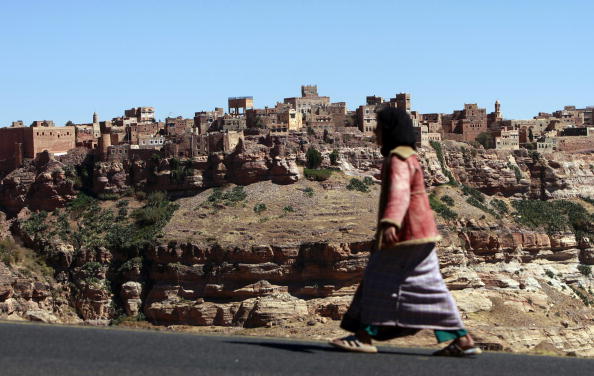It’s hard to imagine a longer or more pressing “to do” list than that of Yemen’s president, Ali Abdullah Saleh. Quite apart from the attempt by Yemeni jihadists to plant parcel bombs in US-bound cargo planes, he is beset with trouble: Recent times have seen a hideous surge in hunger among Yemeni children and a plunge in the level of ground water supplies and oil reserves. A war against northern rebels has raged for six years, smashing towns and villages and turning 350,000 people into refugees while draining the central government’s already shallow coffers. In the south, would-be revivers of the defunct 1968–1990 People’s Democratic Republic of Yemen are gaining force, threatening to split the nation in two and snatch the richest oilfields, to boot. And then of course there’s the daily chore of keeping family, clan and a web of cronies happy, while appeasing tribal sheikhs, religious leaders, opposition parties and the haughty Western diplomats who supply vital top-ups of aid. The tone of such interviews with Western officials may be judged from a recent remark by a British minister, who described Yemen as a country that is “running out of oil, running out of water and may be running out of time, while the world is in some eyes running out of patience.”
Given this load, it is perhaps unsurprising that to Mr. Saleh, the country’s cohort of al-Qaeda-affiliated jihadists, whose number is put by Yemen’s foreign minister at some four hundred men, should not have been seen as a top priority. Of course they represented a threat, but mostly to foreigners. Amid more present dangers, their existence had the advantage of encouraging anxious donor governments to cough up more cash. (As I recently wrote in The New York Review, the US has promised Mr. Saleh as much as $300 million in aid this year.)
The utility of such incidents as the—mercifully unsuccessful—parcel-bomb attempt and last year’s “Christmas Day bomber” is that they tend to nudge al-Qaeda up Mr. Saleh’s priority chart. There have been other, more alarming promptings lately, too. Yemeni security forces have clashed sporadically with the militants for several years, and Yemen has suffered sporadic attacks on embassies in the capital, Sanaa, as well as against oil installations. But the pace and scale of al-Qaeda violence in the country has escalated radically since last spring. In the first eight months of this year some sixty Yemeni security men died in al-Qaeda-related incidents. Since September, according to Mr. Saleh himself, no fewer than seventy more have fallen, sometimes in pitched battles involving helicopters and fighter aircraft. Regardless of headline-grabbing incidents in international airways, such local losses appear to have refocused Mr. Saleh’s regime on the task of dealing with the jihadists.
This is a very good thing. Even more than ethnically and linguistically diverse Afghanistan, Yemen is a country that bristles against foreign meddling. This, indeed, is why so many Yemenis sympathize with al-Qaeda to some degree, despite disliking its methods and questioning its motives. Under intense pressure from Washington, Mr. Saleh has occasionally allowed the US to carry out drone strikes in remote areas. Each time news of one of these has leaked out, and particularly when they have involved civilian casualties, the response from the Yemeni public has been predictably furious. Putting more foreign troops on the ground, or even overtly upping the level of foreign military aid are options that, in the near-unanimous opinion of Yemen analysts, would be bound to backfire.
Yemen is a messy place, with a fearsomely well-armed, fiercely tribal society of immense complexity. Mr. Saleh’s government is corrupt and increasingly oppressive, yet also less and less able to extend control beyond key roads and cities. But Yemen is not a failed state in the manner of Somalia, and not quite yet a failing one like Afghanistan or Iraq. Al-Qaeda has built a strong base there, led by capable people who harbor the ambition to export destruction as far afield as possible. But Yemen’s jihadists should be seen in perspective. They gained a firm toehold here precisely because the inattention of Mr. Saleh’s government allowed them to. Most likely, given proper tools and motivation, his men are capable of beating al-Qaeda back again.
Tackling a group of several hundred fighters and operatives dispersed in cities and over mountains is, in the end, a matter that calls for aggressive policing rather than massive military force. In pursuing such a campaign it is just as important to persuade the Yemeni public that the cops are the good guys as to send the boys in, guns blazing. The task of outside powers should be to do just this—to give serious support to Yemen’s own police and government, while encouraging them to behave in ways that do not alienate broad swathes of the Yemeni public. Only then might Yemenis be convinced that stamping out jihadist violence is not just about western security but for their own well-being.
Advertisement


